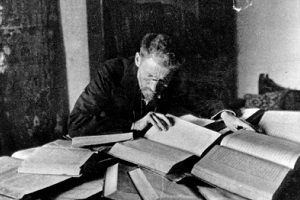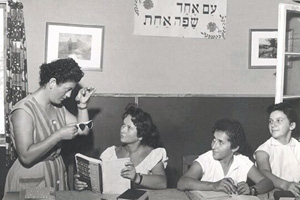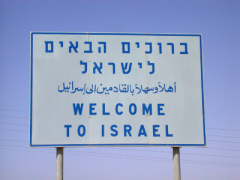How to Speak Hebrew Like an Israeli
By Rachel Rowland
Chaval Al Ha'Zman ("חבל על הזמן"):
Literally means 'A pity on the time' and can be used to literally mean 'a waste of time' or 'not worthwhile.' However, when you use it in slang, it means 'totally awesome.' I've always found 'Haval al ha zman' to be one of the more intriguing Israeli slang phrases because of the fact that it means two entirely different things depending on the way its said and the way you use it.
If I were to use it more conventionally, I would probably describe an errand that would be worthless to run because it would be time consuming.
"I'm not going to go to the bank, its simply 'A pity on the time', I'll just call them instead."
"אני לא אלך לבנק כי זה פשוט חבל על הזמן, אני אתקשר במקום"
If I were to use it as slang, I might describe someone's amazing artwork.
"Bro, your painting is 'A pity on the time', you are a 'genius with a diploma'!"
"אחי, הציור פשוט חבל על הזמן, אתה גאון מדופלם".

Marc Chagall
Kapara Alecha ("כפרה עליך"):
Literally translates to 'Atonement over you' and figuratively means' darling' or 'loved one'.
The word Kapara, actually refers to an old ritual carried out in orthodox Jewish Custom during Yom Kippur, the day of atonement, when villagers take a chicken and swing it over their heads while reciting the following prayer:
"This is my exchange, this is my substitute, this is my atonement. This chicken will go to its death while I will enter and proceed to a good long life, and peace."
Then the chicken is slaughtered and it (or its cash value) is given to the poor. I might use this to address my friend after they did a wonderful favor by saying:
"John, 'Atonement over you'. I can't believe you such a wonderful favor for me!"
"גון, כפרה עליך, אני לא מאמין שעשית את כל זה בשבילי"
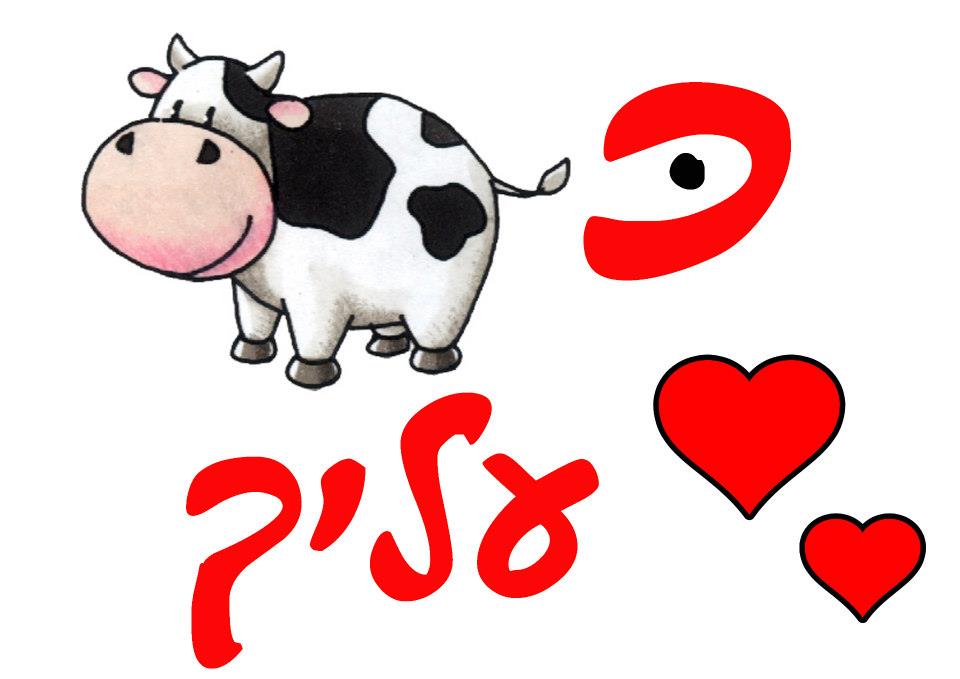
כ = Ka -- cow = 'para" -- עליך = alecha
Al Ha' Panim ("על הפנים"):
Literally translates to 'On the face' and figuratively means 'terrible'. I might use it in a sentence to describe a bad movie or a bad restaurant in the following way:
"This movie/restaurant/night club was 'On the face'."
"'הסרט\מסעדה\מועדון היה 'על הפנים'"
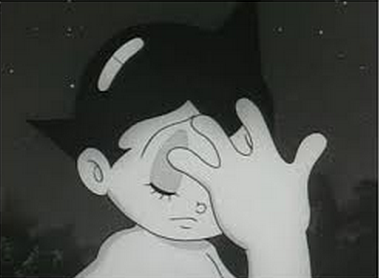
Lo Normali ("לא נורמלי"):
Literally translates to 'Not normal' but figuratively means 'amazing'. I might use it in a sentence to describe a friend of mine who's so dedicated to surfing that he wakes up at 5am every day to catch the best waves.
"Dude, you're 'not normal'."
"'אחי, אתה 'לא נורמלי"

"Mazeh" as an adverb (מה זה" כתאר הפועל"):
Literally translates to 'What is this?' and figuratively means 'extremely' or 'Uber'. I might use it in a sentence to describe something that was extreme.
"It was 'What is this' cold outside- so cold that I had to wear two pairs of pants and three pairs of socks!"
"היה 'מה זה' קר בחוץ - כל כך קר שהייתי צריך ללבוש שני זוגות מכנסים ושלוש זוגות גרביים"

AFP/Getty
La'Asot Chayim ("לעשות חיים"):
Literally translates to 'To make life' and figuratively means 'to have a good time'. I might use it in a sentence to describe a trip we took to Barcelona, without going into much detail.
"We really did "make life" when we were in Barcelona over Christmas break. It was great fun!"
"עשינו חיים בברצלונה בחופשת הכריסמס והיה ממש כיף"
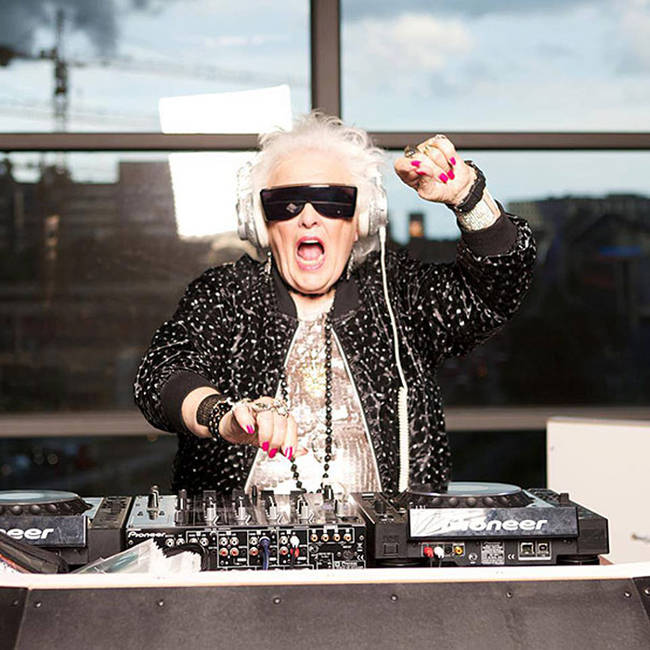
Rachel Rowland is the founder of the popular blog The Rayve. Rachel or "Ray's" blog is a tribute to Tel Aviv and to her tumultuous romance with the country of Israel.
See the full article HERE
What is your favorite saying in Hebrew?


